How much does bathroom flooring cost? Everything you need to know to help budget for your bathroom renovation
We run through how each bathroom flooring material costs to help you find the best choice for your space

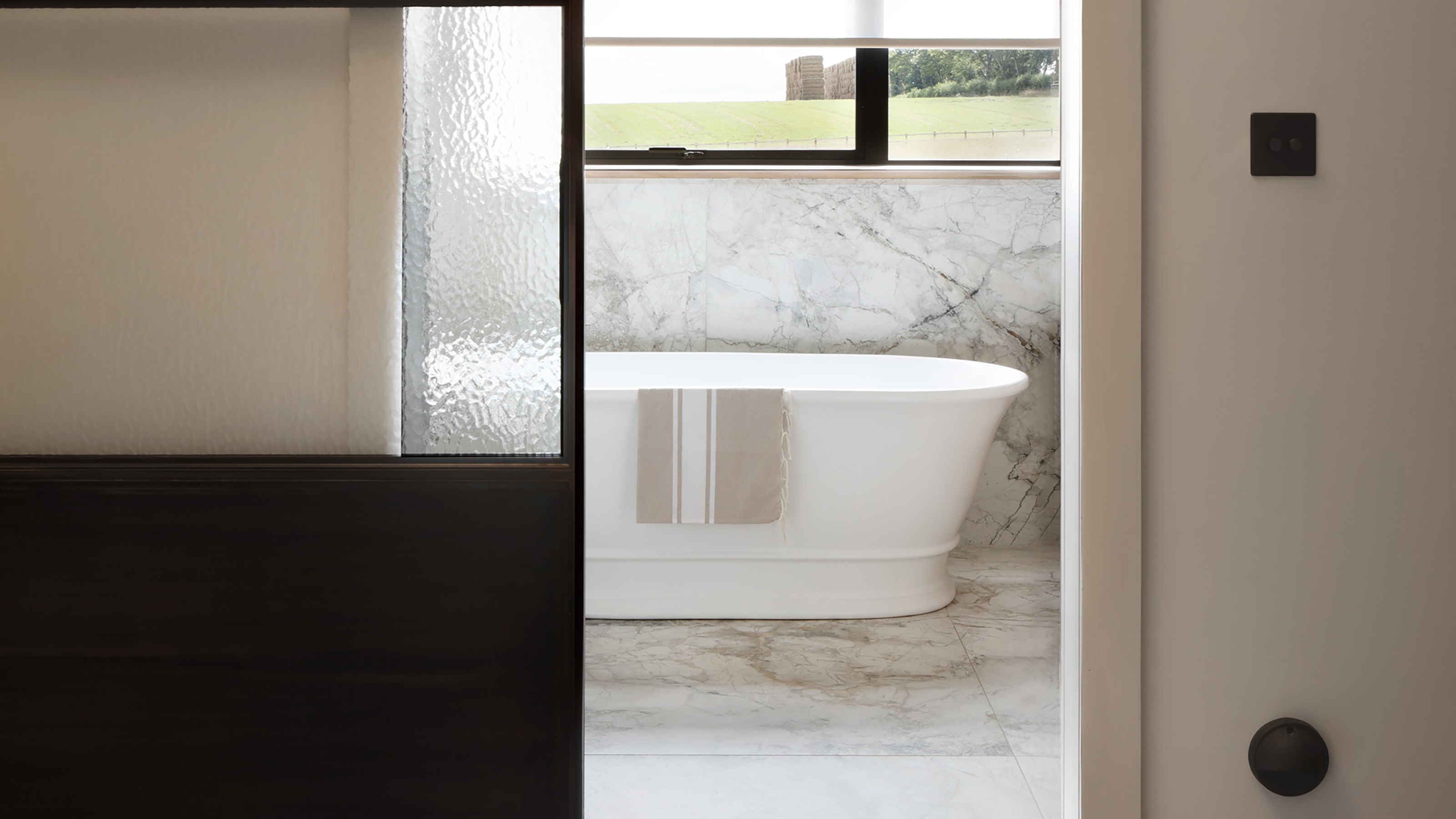
The bathroom floor is one of the most important flooring choices you'll make for your home. It needs to be watertight, slip-resistant and moisture-resistant, not to mention stylish enough to upgrade the look of your space. But if you're undertaking a bathroom renovation and trying to figure out a budget, you're probably wondering 'how much does bathroom flooring cost?'.
Understanding the true costs associated with bathroom flooring, from the floor itself to the labour, will allow you to assess where you can spend and save in other areas. It's worth investing in bathroom flooring as it makes up the majority of the room and is vital for a practical wash space, but this will be relative to your individual budget.
The good news is that there are different bathroom flooring options to suit every price point. From handcrafted terracotta tiles to purse-friendly vinyl, you can find a style that satisfies your dream bathroom moodboard too.
How much does bathroom flooring cost by material?
To help you decide which bathroom flooring to choose, we've broken it down by material to explain how much you can expect each option to cost and how it would look.
'The main priority when it comes to bathroom flooring is that it's anti-slip and able to resist wear and tear such as water damage. We would always recommend materials like vinyl, lino and ceramic tiles as the best options for these reasons,' explains Nancy Emery, bathroom expert at Drench.
Porcelain tiles
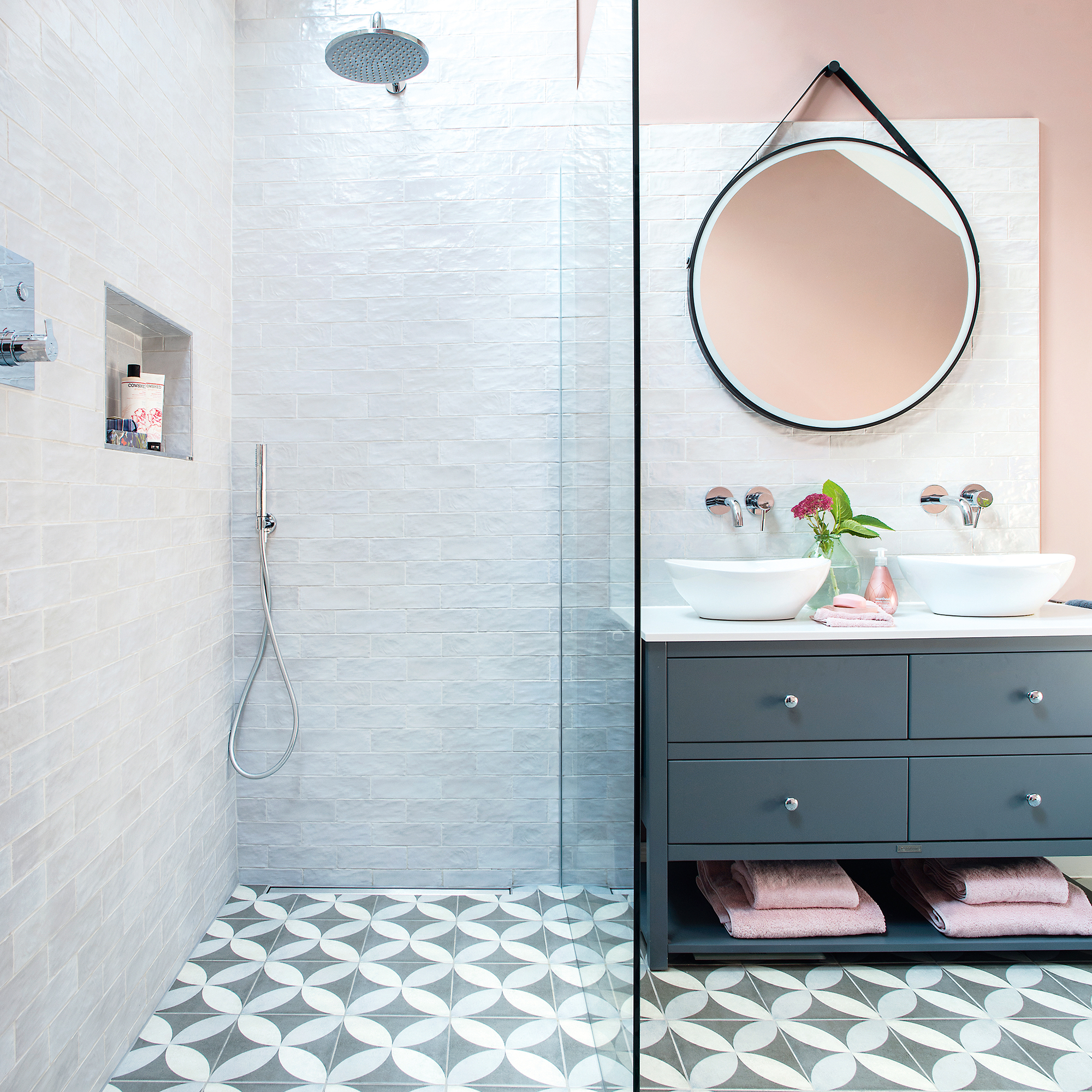
Porcelain tiles are an excellent choice for a bathroom - they're more durable and moisture-resistant than natural stones and you can find styles that replicate these materials. For those who don't want to compromise on a trend-first look but still need practicality, porcelain bathroom tiles are a smart option. But how much will they set you back?
'Porcelain tiles are generally more durable than natural stone and don’t require the same upkeep costs in terms of sealing etc. The cost of purchasing tiles for the bathroom can range from around £12 per sqm to over £200 per sqm for designer/bespoke designs,' explains Colin Lincoln-Evans, buyer at Tile Mountain.
Sign up to our newsletter for style inspiration, real homes, project and garden advice and shopping know-how
'Other costs to factor in include: grout and adhesive, this can vary but an average is around £10 per sqm., removal of the old floor, and subfloor preparation which could vary between £5 and £15 per sqm.'
LVT (Luxury Vinyl Tiles)
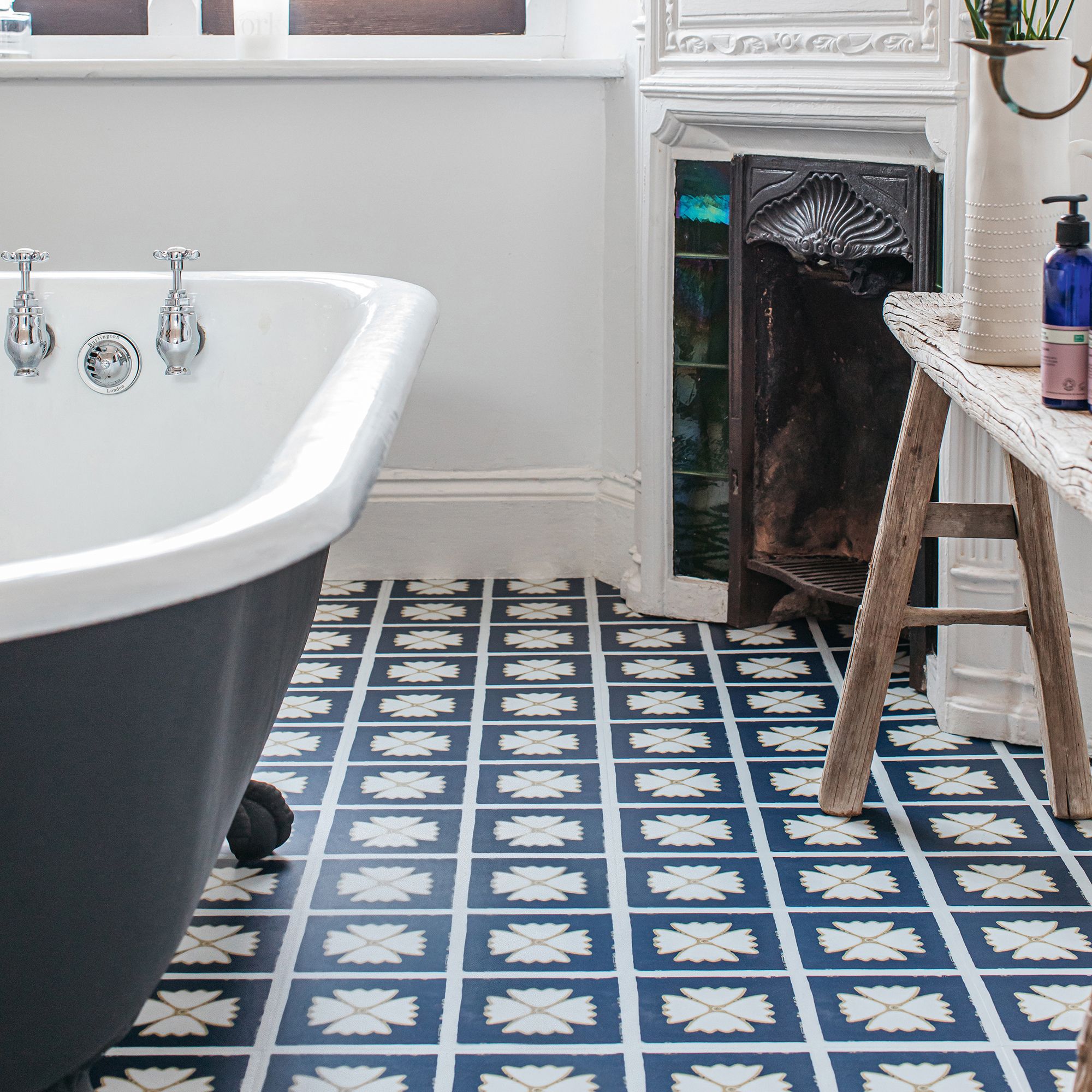
LVT (Luxury Vinyl Tiles) are a popular choice when it comes to both bathroom and kitchen flooring, as it replicates the look of real wood or stone but is much easier to maintain. And more affordable.
'The cost of bathroom flooring really depends on the size of the bathroom you’re renovating, the materials you choose and the complexity of your design. LVT is a much more affordable option compared to real wood and stone, not to mention an incredibly practical choice. Keep it classic with our standard laying patterns or invest in borders, stripping and motifs to add depth and interest to your design,' explains Lorna Williams, head of product design and visual creation at Amtico.
You can expect Luxury Vinyl Tiles to set you back on average £20-£50sq m, making them perfect for small bathrooms where you want to make an impact or larger bathrooms that need a highly practical choice.
Vinyl
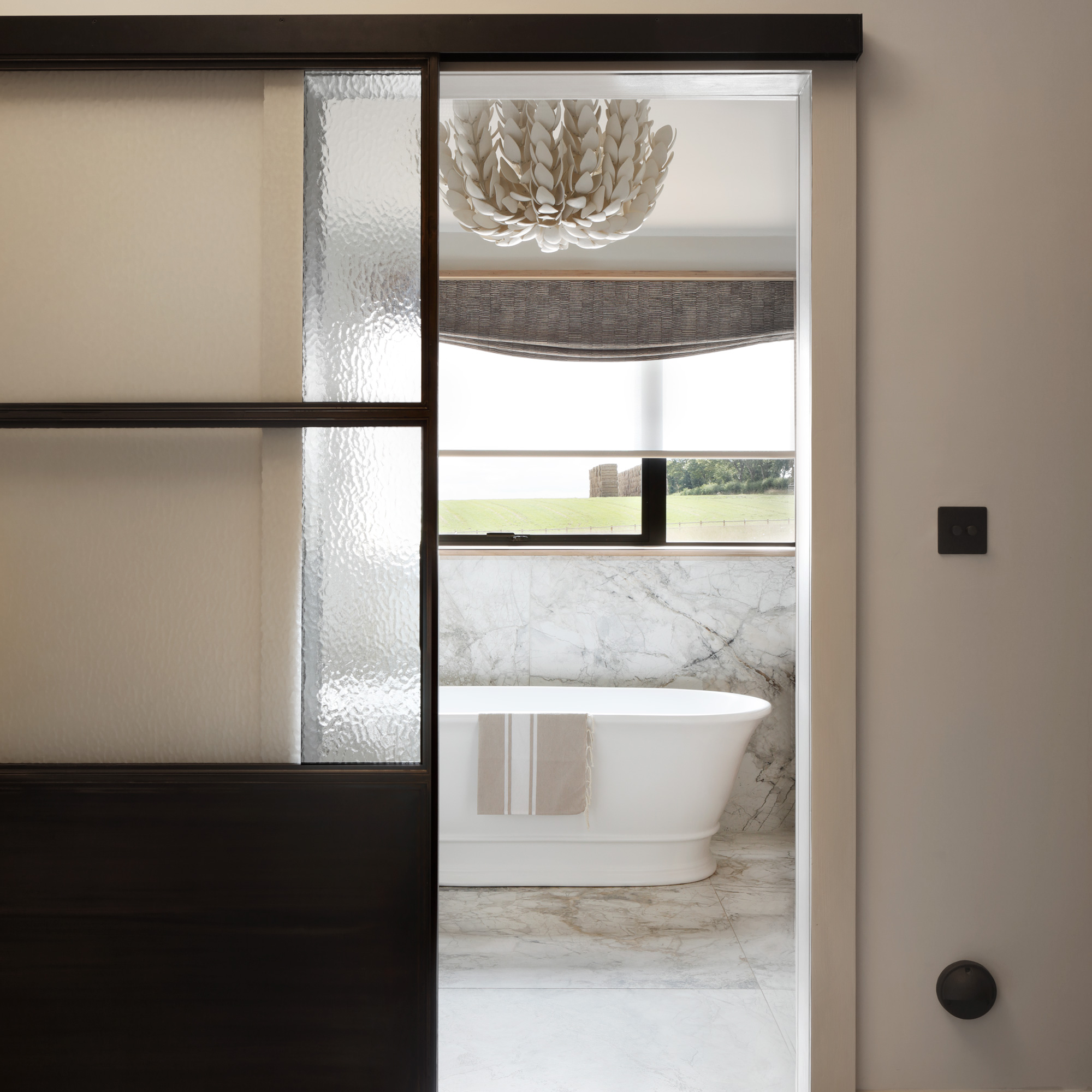
Vinyl is one of the most affordable flooring choices and it is super durable, so this is great for a budget bathroom makeover.
'Vinyl tiles are durable and budget-friendly, though they’re not suitable for wetrooms and come with fewer style options. However, they are easy to install, making them ideal for DIY projects,' explains Abbas Youssefi, founder, Porcelain Superstore.
Vinyl planks can start at as little as £10 per m2 and go up to around £40/£50 per m2, depending on the style. If you're working with a compact room and small budget then vinyl flooring is the best option for a speedy makeover that can be done on a shoe-string.
Engineered wood
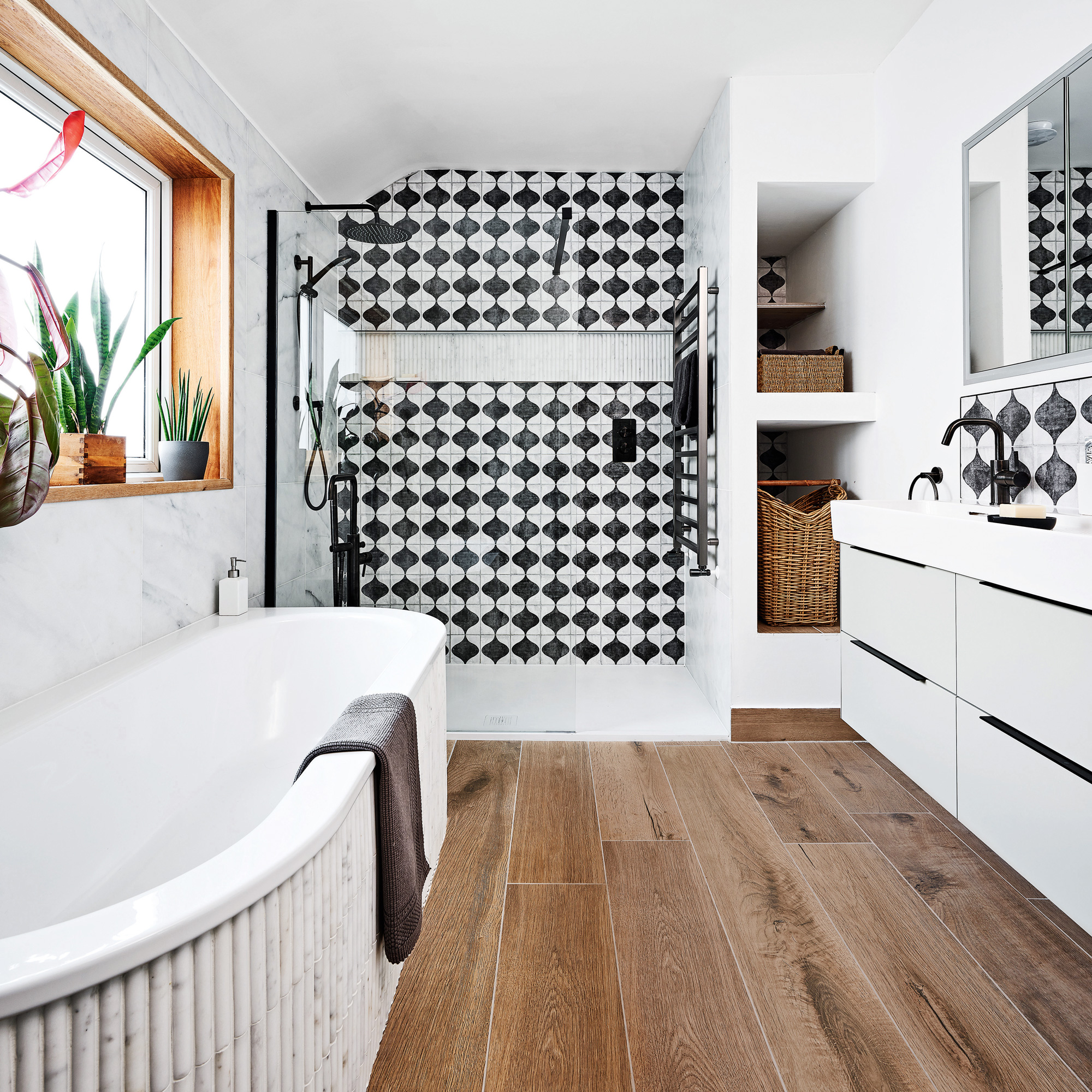
If you love the look of wood but need something more durable and water-resistant for a bathroom then engineered wood flooring is your best bet. It has a multi-layer core engineered board which is much more robust and won't warp due to high-moisture.
It's also suitable to use with underfloor heating, reducing how much humidity hangs around in a bathroom as well as giving you a warm footfall (a true luxury in winter months).
Engineered wood flooring is a slightly more expensive choice, averaging around £65 per m2. While more costly than vinyl, it's significantly cheaper than hardwood flooring and offers a very similar appearance.
What is the most affordable bathroom flooring to install?
The most affordable bathroom flooring to install will be options that come with DIY methods so that you can do a lot of the job yourself. Tile stickers will be the most affordable option if you're looking to update a renter-friendly bathroom, but if you want a more permanent solution than vinyl will be your best bet.
With flooring such as tiles, you'll need grout, tile cutters and extra tools to help with application, whereas vinyl is much simpler. Peel-and-stick vinyl is easy to adhere, and sheet vinyl will just need a bolster chisel, utility knife and adhesive. This handy guide on vinyl flooring will provide much more detail on how to install it yourself.
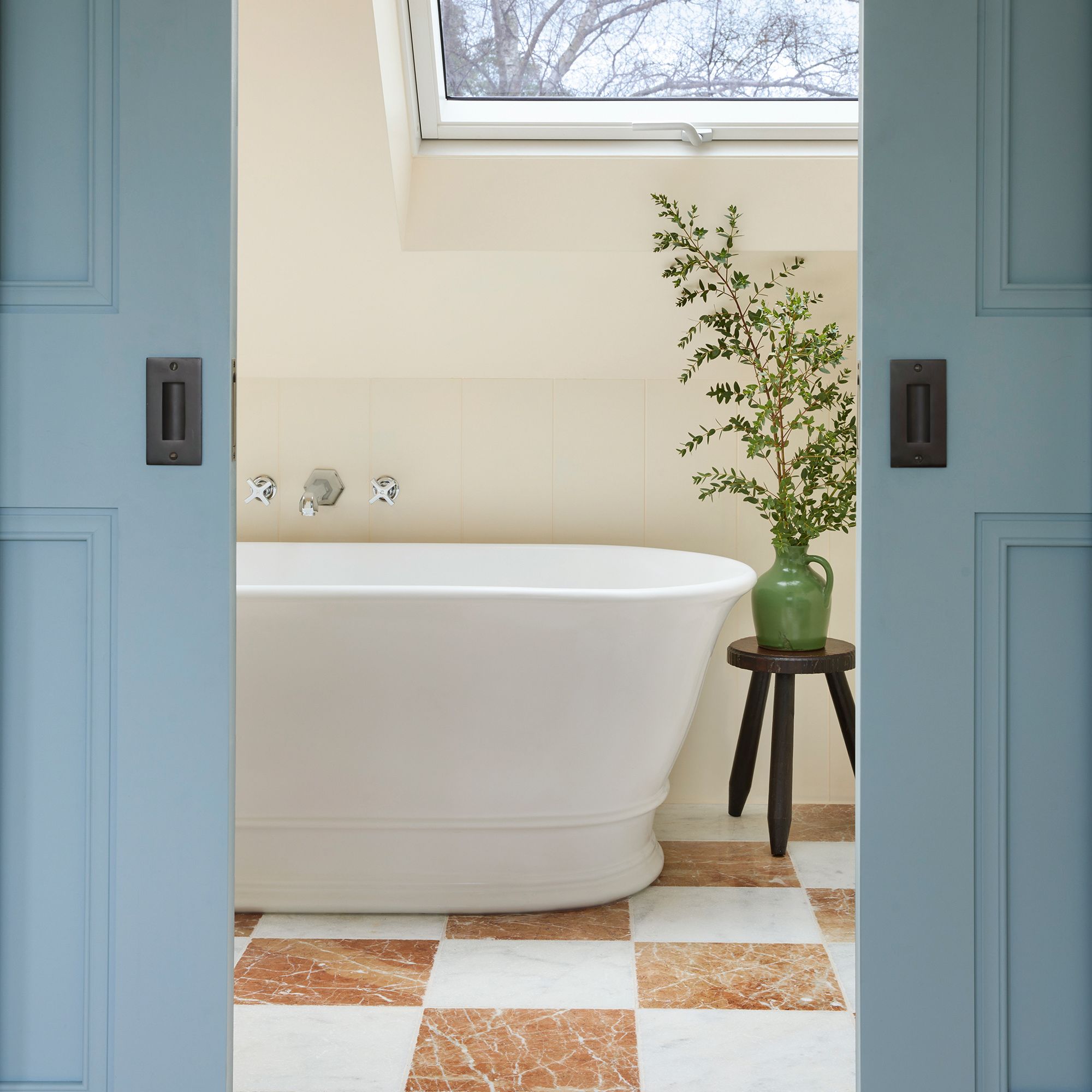
What other costs should you factor in?
If you're not into DIY and want to outsource your bathroom flooring installation, you'll need to factor these additional costs into your renovation budget. Cost will vary depending on how much work is required to lay the flooring of your choice, but for a more complex job such as tiling, this is what you can come to expect. It will also help you decide where to spend and save on your bathroom renovation.
'If you are employing the services of a professional tiler to install the floor you won’t need to purchase these items but would typically spend around £50 per sqm or £200/£300 per day,' explains Colin Lincoln-Evans, buyer at Tile Mountain.
FAQs
What is the best floor to put in a bathroom?
The best flooring to put in a bathroom will always be a durable and water-resistant choice.
'The best floor tiles for bathrooms if you're on a budget are vinyl and laminate floors. These types of flooring are a popular choice for many rooms in the house, especially bathrooms, as they’re cheap, easy to lay down and come in an array of styles and patterns,' explains Nancy Emery, bathroom expert at Drench.
'Out of these two options, vinyl tends to be more waterproof - sheet vinyl, vinyl tile and luxury vinyl flooring are usually made with properties that are completely waterproof, whereas laminate flooring can be prone to water damage and swelling if not looked after. Therefore, if you’re looking for cheap floor tiles that will stand the test of time, we recommend vinyl tiles.'
'For a more statement look, you can opt for floor tiles, mosaics or ceramics and really make a feature out of your bathroom floor,' she adds.

After starting out her journey at Future as a Features Editor on Top Ten Reviews, Holly is now a Content Editor at Ideal Home, writing about the best interior ideas and news. At Top Ten Reviews, she focussed on TikTok viral cleaning hacks as well as how to take care of investment purchases such as lawn mowers, washing machines and vacuum cleaners. Prior to this, Holly was apart of the editorial team at Howdens which sparked her interest in interior design, and more specifically, kitchens (Shaker is her favourite!).